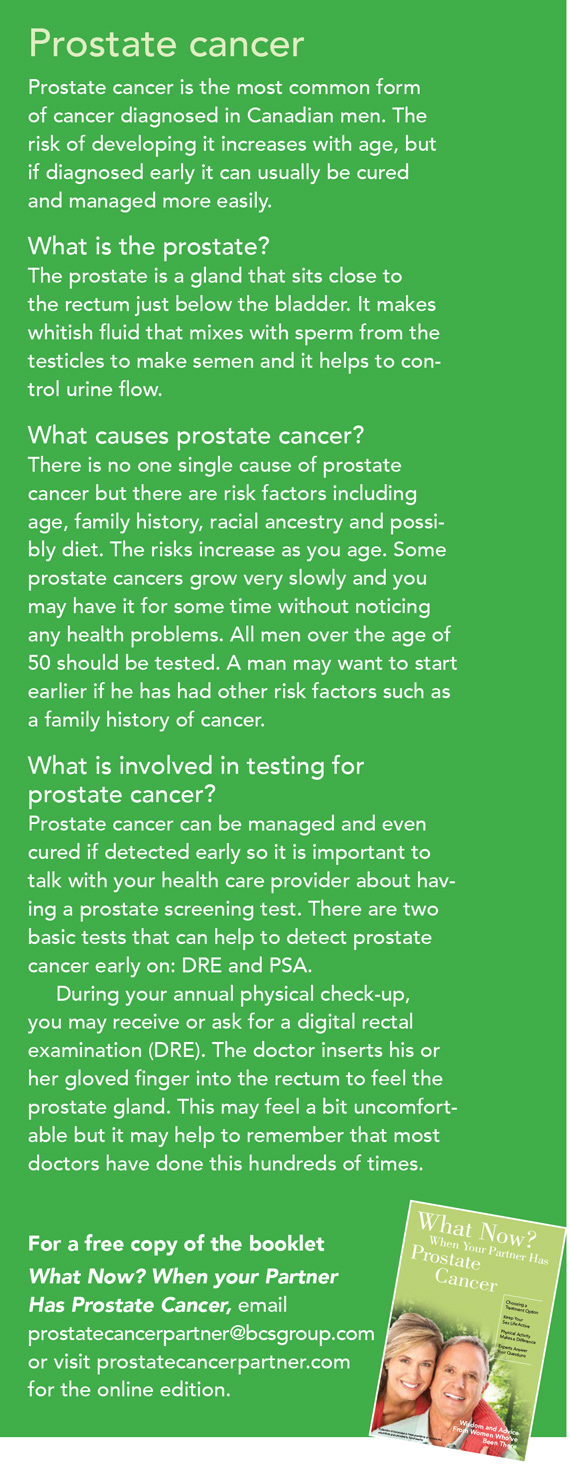 How people experience and express their sexuality will change throughout their lives. Aging brings about natural changes, both physically and emotionally, which can affect our reproductive health, sexual intimacy and sexual response or arousal.
How people experience and express their sexuality will change throughout their lives. Aging brings about natural changes, both physically and emotionally, which can affect our reproductive health, sexual intimacy and sexual response or arousal.
As we all approach later life, two of the things which brought us the greatest joy and took up most of our energies and time – our children and/or our careers – are no longer as prevalent in our every day life. This means that our personal relationships take on an increased importance. While the frequency or ability to perform sexually will generally decline modestly as seniors experience the normal, physiological changes that accompany aging, reports show that the majority of men and women between the ages of 50 and 80 are still enthusiastic about sex and intimacy.
Sex is a way to affirm the love of life. It expresses the closeness of our deepest relationships and is an important measure of quality of life.
The dating game revisited
Some seniors are single again after years with one intimate partner. Others have never hooked up with a long-term partner but haven’t been in the dating scene for a while. Still others are in the process of “coming out” and openly seeking a same-sex partner for the first time in their lives. Regardless of the circumstances, it can be nerve-wracking to be back in the dating scene later in life. You may be ready to date but you aren’t sure what the rules of the game are anymore. The basic rules are the same:
• Respect yourself
• Respect your partner
• Communicate
• Use protection
• Have fun
As a senior, you may no longer have to worry about unplanned pregnancy but everyone has to protect themselves from sexually transmitted infections (STIs). STIs have no age limits and if you are sexually active, you need to practice safe sex. The most important protection is to learn how to use a condom and lots of lubrication to negotiate safer sex with your partner.
Sex is good for your health!
Let go of old sexual habits. Focus on being sensual and enjoying all the ways you can feel sexy alone and with a partner. Be patient and go slow! Explore different types of touch, sex toys and the different things that make you feel sexy and confident.
Bring up the subject of sex, share your fears or worries with your partner and clearly communicate what you like and don’t like. You may have to plan sex more, but you can use these planned times to find the best time and place to ensure maximum comfort and pleasure!
Women’s sexual health
As women grow older they experience a hormonal transition that signals the shutting down of their reproductive cycles. This is menopause. In many ways it is similar to the transition they experienced in adolescence when things were just starting up. Everyone ages in slightly different ways. There are a number of common physical and emotional changes you may experience but then again…you may not.
Signs of aging
All women have different experiences. Here are some common physical signs that a woman may experience:
• Urinary incontinence (when urine accidentally leaks)
• More frequent urination
• Decreased sexual desire and arousal
• Mood swings
In North America, sexuality is often associated with youth but in reality, many women find sexual joy and strength in their later years. They no longer worry about pregnancy and are comfortable communicating their sexual needs with a partner.
Menopause
Over a lifetime there are two significant milestones in your physical sexual development: puberty and menopause. The onset of menstruation means that a female is physically able to get pregnant. Menopause is the opposite transition. Ovaries decrease the production of estrogens which signals the end of menstruation and ability to get pregnant. Technically, menopause signifies menstruation has ended for at least one whole year.
What is perimenopause?
Perimenopause refers to the time when a woman first starts experiencing signs of menopause until her menstrual period actually stops for a year. This transition can take several years.
Sex is painful. What can I do?
Waning hormones after age 50 cause thinning of vaginal tissues and can make sex painful. Use water- or silicone-based lubricant before and during sex to reduce the discomfort of vaginal dryness. Do not use cream, petroleum jelly or any other moisturizer that is oil-based. You can buy personal lubricant at the grocery or drug store. Talk to your doctor about lubricants or hormone treatments designed specifically for seniors.
Men’s sexual health
As men grow older, their levels of testosterone (the male sexual hormone) naturally decline, causing changes in their sexual health, sexual function and emotions.
Signs of aging
All men have different experiences – some men experience dramatic fluctuations in their hormone levels while others notice relatively little change. Here are some common physical signs of aging that a man may experience:
• Less firm or less frequent erections
• Increased ‘recovery time’ or time between erections
• Decreased force of ejaculation
• Urinary incontinence
• Decreased sexual desire and arousal
• Increased risk of prostate cancer
Until recently, men were not encouraged to talk with one another about their experiences or to seek help with their sexual health changes because “men should always be interested in sex and ready to go.” Thankfully, this is changing.
What is erectile dysfunction (ED)?
Erectile Dysfunction (ED) is different from having a hard time getting it up or maintaining an erection because you drank too much, are tired, or feeling distracted by other concerns. The College of Family Physicians of Canada (2007) defines erectile dysfunction as “…when a man can’t get and keep an erection long enough to have sex on at least 50 per cent of tries.” The Canadian Male Sexual Health Council defines ED as a problem that persists for more than three months. It is a common problem, affecting about one in every three men on a regular basis. It is more common in men over age 65 but it affects middle-aged and younger men as well.
What causes erectile dysfunction?
A lot of males are embarrassed to talk about ED because they assume it is some kind of sexual inadequacy on their part but this is not true. It can be your body or mind’s way of indicating there is an issue that needs addressing. There are a number of physical causes and medications that can cause ED.
Physical causes usually stem from damage to the blood vessels that carry blood to the penis or to the nerves that carry signals of arousal from the brain to the blood vessels themselves. For example, ED can be caused by a stroke, diabetes, hardening of the arteries, smoking, Parkinson’s disease, alcoholism, Multiple Sclerosis (MS), liver or kidney failure, brain or spinal-cord injuries, Hypogonadism, or radiation to the testicles (treatment for prostate cancer).
However, ED is not just a physical health problem. The mind-body connection is strong, and how a man feels or what he thinks has direct impact on what his body does. Mental causes of ED include stress, anxiety, depression and grief. For example, a man who has experienced ED once may begin to worry that it will happen again. The anxiety he feels becomes a self-fulfilling prophecy because he cannot relax and his body responds by shutting down.
 If this is happening, remove the goal of penetration altogether from your next several sexual encounters. Once your mind learns not to anticipate it, it will stop letting you get so anxious.
If this is happening, remove the goal of penetration altogether from your next several sexual encounters. Once your mind learns not to anticipate it, it will stop letting you get so anxious.
Try to maintain perspective. It’s perfectly normal and okay for your sexual drive to slow as you age. Try not to put too much pressure on yourself to be sexual in the exact same ways you were when you were younger. Look at this as an opportunity to rediscover your sexual self as an adult.
Is there help?
Yes – there is something you can do about ED. One thing you can do is practise relaxation techniques to ease your mind and remind yourself that you are not alone. Boost up the foreplay with your partner and take the focus off penetration. You don’t have to “perform” in order to have a sexually satisfying relationship.
Other treatments depend on what the cause is. Your doctor can run some tests and may recommend hormone shots or medication such as Viagra, Levitra or Cialis. It is important, however, that you consult a physician before taking medications to stimulate arousal so that you fully understand the risks and benefits of various options. In July of 2005, Health Canada issued a health warning to men who take Viagra, Levitra or Cialis about risks of vision loss or impairment caused by blockages to the optic nerve. Any man who notices sudden vision loss or vision-related problems while taking these drugs needs to seek immediate medical treatment.
Reprinted with permission from the Calgary Sexual Health Centre.












